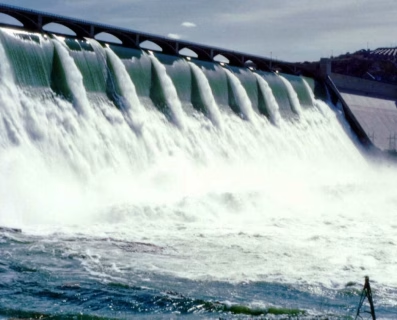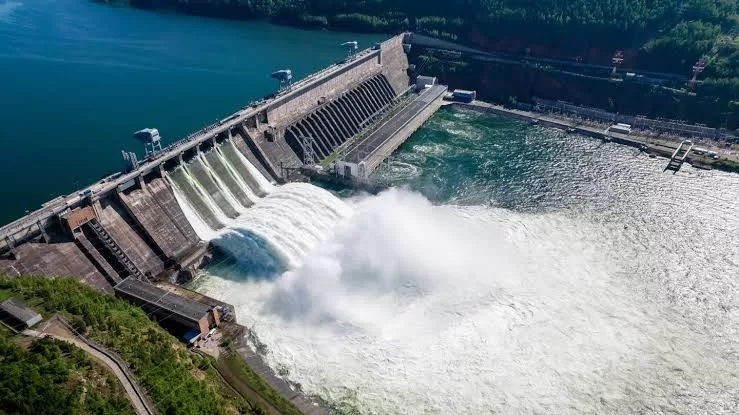Updated October 14, 2025- The Batoka Gorge Hydropower Project is a major proposed bi-national scheme between Zambia and Zimbabwe. This hydropower project is planned for construction on the Zambezi River which is located approximately 54 kilometers downstream of Victoria Falls.
Additionally, the project, overseen by the Zambezi River Authority, aims to construct a 181-meter high arch-gravity dam and two surface power plants, one on each side of the river. These will boast a combined total installed capacity of 2,400 megawatts (MW). The Batoka Gorge Hydropower Project is intended to significantly boost electricity supply for both Zambia and Zimbabwe. Also, it is expected to significantly strengthen the Southern African Power Pool.
However, the $5 billion project has faced delays and challenges. These challenges include environmental concerns over the impact on the unique Batoka Gorge ecosystem and the lucrative white-water rafting industry, as well as procurement irregularities that led to the project being retendered.

With such ambitious hydropower projects being planned for development in Africa, their development will ensure energy securities for African countries. Other hydropower development projects in Africa such as the Cahora Bassa in Mozambique which is currently undergoing rehabilitation represent a bold step in which African states are taking to boost hydropower development and energy security in the continent.
Reported on May 4, 2025
Zambia and Zimbabwe are currently ramping up their efforts to secure an investment for the long-delayed $5 billion Batoka Gorge Hydropower Project. Additionally, the duo are reviving a controversial plan to potentially source water from Democratic Republic of Congo.
“The Zambezi River Authority, which is a joint venture between the southern African nations that are responsible for maintaining the Kariba Dam complex, has formed a team that will court investors in the proposed 2,400-megawatt facility. This facility will be located near World Heritage site Victoria Falls,” Chief Executive Officer Munyaradzi Munodawafa said.
Batoka Gorge Hydropower Project Factsheet
Location: Zambezi River, between Zambia and Zimbabwe, Southern Africa.
Capacity: 2400 MW
Dam type: Roller Compacted Concrete (RCC) gravity arch dam.
Dam height: Approximately 175-181 meters.
Dam crest length: Approximately 720 meters.
Power transmission:
To Zambia: Two 330kV overhead transmission lines (one double-circuit, 55 km long to Mukuni substation; one single-circuit, 170 km long to Muzuma substation).
To Zimbabwe: Two 400kV overhead transmission lines (one single-circuit, 70 km long to Hwange substation; one double-circuit, 400 km long to Chakari substation).
Estimated investment: Approximately $5 – $6 billion USD.
Expected annual energy production: Approximately 10,215 GWh.
Implementing authority: Zambezi River Authority (ZRA).
Expected start of construction: Originally anticipated around 2019-2020, but has faced delays. The project team is retendering the contract and expects to receive bids by April 2025.
Expected completion: Originally projected around 2024-2026, subject to new timelines after retendering.
Project model: Build-Operate-Transfer (BOT), with ownership eventually reverting to Zambia and Zimbabwe.
Also read: The Mega US$4.5 Billion Batoka Hydro-power Project Commencement Set for 2025
“The resource mobilization effort is targeting a time-frame of 12 to 18 months. Additionally the effort is subject to investor confidence, market conditions, and ongoing bilateral support from the Governments of Zambia and Zimbabwe,” he mentioned in an emailed response to questions.
Work on the Batoka Gorge project had been scheduled to start in 2020. However, it was delayed by the onset of the coronavirus pandemic and difficulties encountered in securing of funds. Last year, Zambia made an announcement of its withdrawal from a 2019 contract previously awarded to General Electric Co. And Power Construction Corp. Of China, citing irregular procurement methods.
Bidding Deadline on the Project
Also, Zambia and Zimbabwe set a deadline of selecting new bidders by September this year. Efforts to raise funding face further obstacles. Among the obstacles entail both Zambia and Zimbabwe being currently in debt distress, with Zimbabwe owing $21 billion to creditors and Zambia still finalizing a restructuring after defaulting on its loans five years ago.
“It may be very expensive to mobilize for both countries,” said Prosper Chitambara, a Harare-based economist. “The costs will be on the high side given the debt distress both Zambia and Zimbabwe are facing.”
Also read: The Mega US$5 Billion Batoka Hydropower Construction Contract to be Retendered
To improve the general capacity of Kariba and counter effectively the effects of erratic rainfall caused by climate change, the two nations are also weighing a plan to divert as much as 16 billion cubic meters (4.3 trillion gallons) of water annually from the Congo River. Even though that might stabilize inflows into Kariba, challenges still remain. These include the high energy demands of pumping water uphill and topographical constraints.
“Lastly, detailed feasibility studies, which include technical, environmental, and economic assessments, will further guide the determination of implementation time-lines and cost estimates,” Munodawafa also stated. Furthermore, planners are considering passive gravity-fed or canal systems as alternatives to energy-intensive pumping.
Also read: The UN Grants Approval for $5 Billion Batoka Gorge Project Construction

Leave a Reply